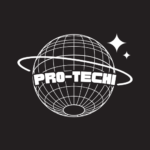The arrival of intelligent technology heralds a paradigm shift in healthcare, potentially revolutionizing patient care, operational efficiency, and medical research. The healthcare system can provide more efficient, high-quality, and individualized treatment due to this major advancement. What, however, is driving this change, and how are these technologies changing the face of healthcare?
Introduction to Intelliscient Technologies in Healthcare
A combination of the words “intelligent” and “omniscient,” “intelliscient technologies” comprise a wide range of smart technologies such as AI, ML, and big data analytics. Smarter, faster, and more effective health treatments are made possible by these advances, changing the nexus between patients, clinicians, and data in healthcare.
The Evolution of Intelliscient Technologies
Healthcare’s relationship with technology has been one of steady escalation, from the invention of the stethoscope to the development of medical imaging. Intelliscient technologies herald the latest chapter. Historic investments in digital infrastructure have prepared the groundwork for today’s expansive growth. However, the computational leap in the late 20th century and the rise of AI truly sparked this evolution, as noted by healthcare innovator Dr. Jane A. Smith.
Key Applications of Intelliscient Technologies in Healthcare
In contemporary medicine, AI and machine learning manifest in myriad ways. Diagnostic algorithms, for example, scrutinize images for signs of illness with superhuman precision, while data analytics tailor treatment plans to the individual patient, as evidenced by IBM Watson Health’s Oncology Advisor.
Google DeepMind’s Streams app is another illustration that optimizes the management of acute kidney injury with AI-enhanced efficiency. These tools aren’t just additive; they’re transformative, fundamentally altering how we view and manage health.
Benefits of Intelliscient Technologies in Healthcare
The boons of these technologies are multifaceted, touching on nearly every dimension of healthcare. Quality of care is enhanced through early disease detection and personalized treatment strategies, outcomes affirmed by Prof. Michael Lee’s work in AI in Medicine. Regarding operational excellence, AI can optimize hospital workflows, reduce costs, and mitigate human errors.
Challenges and Limitations
Despite their promise, intelliscient technologies aren’t without their pitfalls. Ethical considerations, such as data privacy, remain paramount, as Tech Analyst Report Insights critically observes. Additionally, there’s the issue of the digital divide, which can exacerbate healthcare disparities if addressed.
Future of Intelliscient Technologies in Healthcare
Peering into the future, it’s clear that these technologies will further embed themselves within healthcare. Predictive analytics, telehealth, robotic-assisted surgeries — each area stands at the brink of a major leap, thanks to intelliscient technologies. The trajectory isn’t just promising; it’s accelerating.
Case Studies and Examples
Real-world applications illuminate this trend. PathAI’s diagnostic AI showcases enhanced precision in pathology, reducing diagnostic timeframes and increasing accuracy. Similarly, Zebra Medical Vision’s imaging analytics proactively spotlight diseases like osteoporosis and breast cancer, showcasing preventive potential.
Conclusion
In sum, intelliscient technologies are not mere adjuncts to healthcare; they are catalysts for its whole transformation. They offer a vision of healthcare that’s more effective, more precise, and more equitable. The path forward is complex and fraught with challenges, yet the potential for positive change needs to be more substantial to ignore. Engaging the power of intelliscient technologies, the very fabric of healthcare could be re-woven, creating a system that’s responsive to the needs of the individual while being attuned to the wellbeing of the global community.
With contributions from leaders like Dr. Jane A. Smith and Prof. Michael Lee, healthcare stands on the precipice of a new era—an era where the confluence of human ingenuity and intelliscient technologies drives us towards a future where all can receive care that’s not just remedial, but truly revolutionary.




